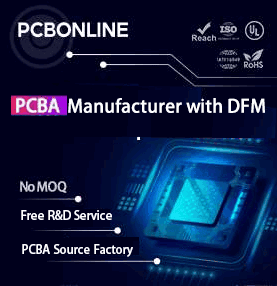Nowadays, most computer buyers pick between two options for internal storage: Solid-State Drives and Hard Disk Drives. Both alternatives have their own set of advantages and disadvantages. So, what should you buy? Well, the answer depends on your computing needs. Let’s start with the more established product.

Hard Disk Drives
A lot of people ask: what is a hard drive and aren’t all hard drives the same? Well, a hard disk drive (HDD) is a kind of electromechanical storage drive with moving parts, and no, not all hard drives are the same. They come in different speeds, form factors, and types. For example, you can get HDDs that spin at 5400 RPM and faster ones that spin at 7200 RPM. You can also buy internal and external HDDs.
Advantages of buying an HDD over an SSD:
#1 Price
Although SSD prices have fallen significantly since the early 2010s, they’re still more expensive per gigabyte than HDDs. You can choose an HDD if cost is an issue, and you just want to store long-term data like pictures and videos that you don’t need to access regularly.
#2 Legacy Connectivity
People with older computers may have no choice but to use an HDD. Obsolete motherboards typically had ATA or IDE ports that could connect to HDDs. Meanwhile, SSDs require SATA ports or PCI-Express that outdated machines lack.
Likewise, SSDs have had compatibility issues with operating systems from 2006 and before. Whether you use an old operating system out of necessity or just like retro software, you should probably stick to an HDD. Similarly, your aging computer case could be designed to carry an HDD but not an SSD.
Advantages of buying an SDD over an HDD:
#1 Speed
SSDs are usually significantly faster than HDDs. You can boot your computer, access apps, start games, launch multimedia players, and transfer files much faster with an SSD. Your SSD is particularly handy for software you need to access frequently, like your operating system (OS).
#2 Reliability
While a typical HDD may consist of a spindle that carries flat circular spinning discs and a head that reads and writes data, an SSD stores data in circuits. SSDs are less prone to damage than HDDs from dust, vibrations, or minor falls because they lack moving mechanisms. In addition, SSDs can also handle extreme temperatures better than HDDs.
Dual Drives May Be the Best Option
Many computer users have both SDDs and HDDs to get the best of both worlds. Their primary storage drive is usually an SDD that stores the operating system, video games, antivirus software, word processing apps, communication tools, web browser, and more. Meanwhile, their secondary drive is usually a larger capacity HDD that stores images, videos, and other big apps they don’t need to interface with daily.
What Drive Can You Erase More Securely?
Perhaps you’re an undercover agent operating in another country, or maybe you really don’t like those wedding pictures and want to know what drive you can erase more securely. Well, research from the University of California finds that SSDs are more challenging to erase securely than conventional HDDs.
While you can securely erase all data on an HDD by deleting and then overwriting it, SSDs are more challenging to erase because of how they translate commands. In fact, researchers found that even the most comprehensive file destruction method left behind up to 4% of the contents.
So, if security is critical for your SSD, please buy an encrypted version of the storage drive. Alternatively, use encryption software to prevent bad actors from reading information.
What Drive Is More Susceptible to Malware?
You’re not alone if you’re concerned about malware infecting your storage drive. Malware, short for malicious software, is any program that harms a computer or system. Examples of malware include viruses and worms that can corrupt data, ransomware that can encrypt a storage drive and hold it for ransom, spyware, keyloggers, and banker Trojans, which let threat actors steal your data. Then, there are kernel rootkits that give a threat actor broad control of your system.
While both SSDs and HDDs are equally susceptible to malware, SSDs may run antivirus scans a little faster. But whether you have an SSD or an HDD, the best way to protect your machine from malware is to download anti-malware software that stops legacy threats such as viruses and more sophisticated threats like ransomware. Similarly, steer clear of malware attack vectors like untrustworthy downloads, websites, and emails.
Ultimately, you can’t go wrong with either an SSD or an HDD. But if you want a bit more speed, please look for an SSD. And if you need more value, pick up a top HDD for the most bang for your buck.

